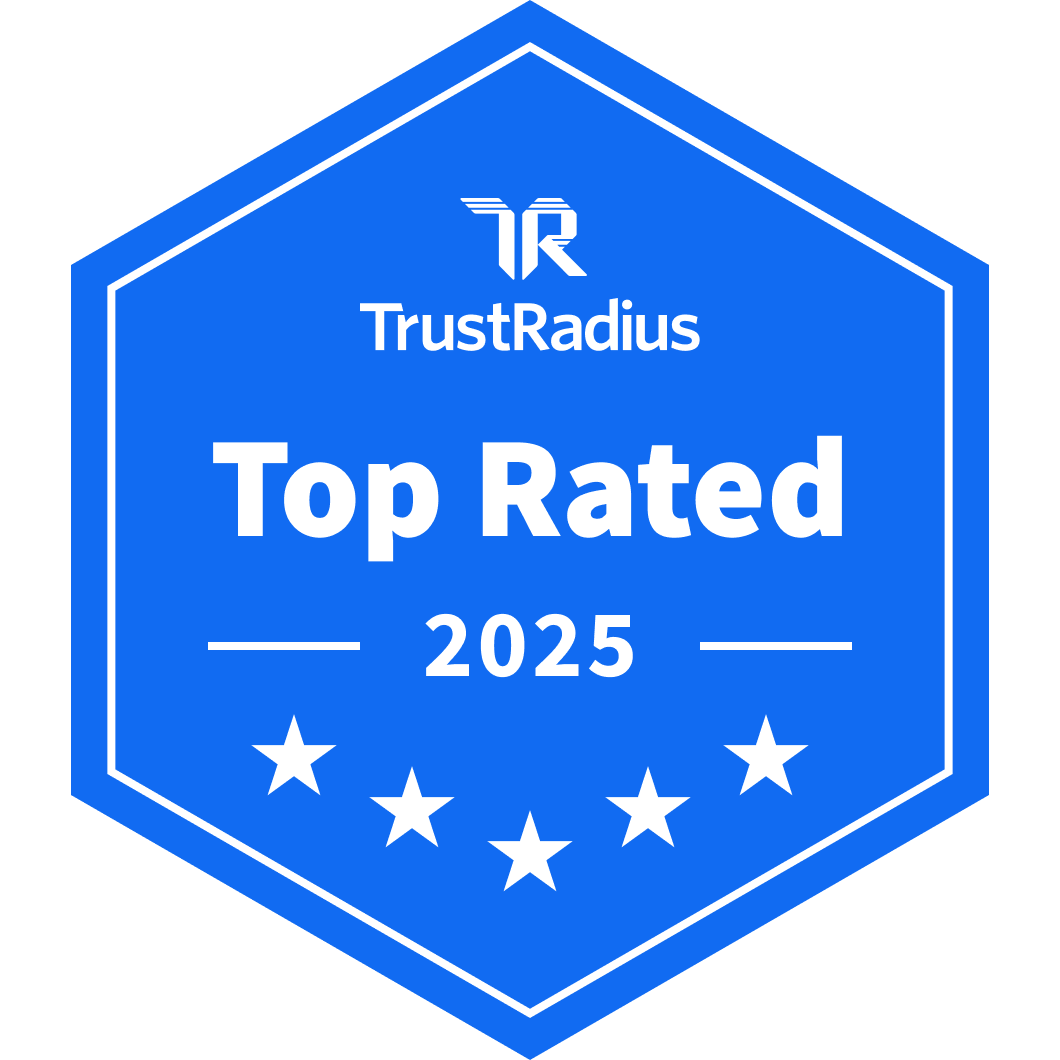
Cut costs, eliminate manual work, and gain full visibility into your payables process.
Companies with multiple entities face challenges consolidating financials, managing intercompany transactions, and complying with complex regulations.
As UK businesses are increasingly challenged to deal with evolving issues like Brexit, trade complexities and Making Tax Digital, they need software to handle multi-entity accounting.
We cover the leading options to consider.
Top-Rated Accounting Software with Multi-Entity Capabilities
Our list of top-rated multi-entity accounting solutions include both foundational ERP systems and specialised AP automation platforms that integrate with ERPs:
Quick Overview of Top Multi-Entity Accounting Software
| Solution | Best For | Multi-Entity Consolidation | UK VAT and MTD Support | Global Payments | Pricing |
|---|---|---|---|---|---|
| Tipalti | Mid-market and enterprise firms scaling globally | Yes, through deep integration with ERPs and centralised payables dashboard | Yes, with UK VAT number validation and digital record keeping for MTD compliance | Yes, in 120+ currencies to 200+ countries via BACS, Faster Payments, CHAPS | Starts from £99/month for starter package, additional add-ons quote based. |
| QuickBooks | UK small businesses and sole traders | No native feature. Requires manual exporting or third-party apps | Yes, MTD-compliant for single-entity submissions | Limited multi-currency in some plans, not a core feature | Starts from ~£16/month per entity for the simple starter plan |
| Xero | UK small businesses with app integration needs | No native feature. Relies on third-party apps for consolidation | Yes, MTD-compliant for single-entity submissions | Limited multi-currency available, cross-border payments need integrated solution | Starts from £16/month per entity for the starter package. |
| NetSuite | High-growth companies needing comprehensive ERP | Yes, via NetSuite OneWorld module with real-time consolidation | Yes, supports country-specific tax requirements including MTD | Yes, supports over 190 currencies | Quote-based subscription |
| Microsoft Dynamics 365 | Companies scaling within Microsoft ecosystem | Yes, Business Central supports multi-company setup, may need add-ons for complex scenarios | Yes, meets UK tax and MTD reporting requirements | Multi-currency capabilities exist, mass payments may need partners | Quote-based, modular. Starts from £53.80 per named user, per month |
What is Multi-Entity Accounting Software?
Software and Saas solutions subsumed under the term ‘multi-entity accounting software’ help parent organisations manage finances across multiple companies, subsidiaries, or different entities. It includes ERP systems and add-on solutions that integrate with a company’s core financial system.
The solutions allow subsidiaries and the parent company to manage budgets, execute accounting processes, prepare statements, and access entity and consolidated financial reports.
A core component of this software ecosystem is the ERP system, which acts as a unified database for:
- Bank account management and reconciliation
- Financial management and reporting, including balance sheet and cash flow statements
- Accounting (Accounts Receivable and Accounts Payable) and expense management
- Operations and supply chain management
- Inventory management
Less comprehensive accounting systems focusing on bookkeeping can work for small business owners, but may lack the robust multi-entity capabilities and accounting features needed as companies grow and need to manage more complex financial records.
1. Tipalti: Built for High-Growth AP Teams
As multi-entity organisations grow, manual accounts payable processes become a major bottleneck. While Tipalti is not a fully-fledged ERP solution, its recent acquisition of Statement and rich API and integrations are tailored to multi-entity enterprise needs.
Tipalti’s payables automation platform integrates with ERPs like Sage to streamline the entire AP workflow from one centralised dashboard. Tipalti is authorised by the UK’s Financial Conduct Authority as an Electronic Money Institution, helping UK businesses automate payables.
Key features for multi-entity finance teams include:
- Supplier onboarding with UK VAT number validation
- Invoice processing using AI OCR technology
- Three-way PO match and approvals across entities
- Global payments in over 200+ countries and territories in 120+ currencies, including UK methods like BACS and Faster Payments
- Real-time payment reconciliation with ERP
- Multi-currency management and FX hedging
In some cases, Tipalti automates 80% of the manual payables workload, enabling businesses to close books 25% faster while strengthening financial controls and reducing compliance risk. The platform offers robust security and complete audit trails for every transaction across subsidiaries.
Best For
Mid-size to enterprise companies experiencing fast growth, complex payables and global payment needs.
Pricing
Starter plans begin at £99 per month. Custom quotes available for more complex business needs.
Trusted by Finance Leaders. Backed by Industry Awards.
Tipalti has received recognition from industry research firms G2, GetApp, and Software Advice and many more. It has also been featured on the Capterra Shortlist for 2025 and top-rated on Trustradius.


Cut 80% of manual AP work without sacrificing control
Tipalti helps growing UK businesses eliminate 80% of manual AP tasks while ensuring tax compliance, faster global payouts, and stronger vendor relationships.
2. QuickBooks
QuickBooks from Intuit is popular among UK small businesses. Its cloud-based products are affordable but have limited multi-entity support. QuickBooks Online requires separate subscriptions per legal entity. Users can switch between company files with one login but financial data stays siloed.
QuickBooks does not natively support true financial consolidation. Finance teams must manually export data to spreadsheets or use third-party apps. This approach can become inefficient and error-prone as the business grows, making it hard to get a real-time consolidated view of financial health.
Best For
Small businesses or sole proprietors that need basic accounting and have limited budgets. QuickBooks is a good option for early-stage companies with simple financials and few entities.
Pricing
QuickBooks Online Simple Start plans begin at £16 per month. More advanced plans with additional users and features are also available.
3. Xero
Xero is a cloud accounting platform popular with UK small businesses and startups. Like QuickBooks, Xero requires separate subscriptions per entity, enabling distinct record-keeping but lacking built-in consolidated reporting and intercompany transaction management.
Finance teams using Xero for multiple entities typically rely on add-on apps for consolidation. These can pull data from multiple Xero organisations to create group reports. While Xero is MTD-compliant for individual VAT returns, managing group VAT or consolidated financials requires exporting data outside of Xero’s native environment.
Best For
Small businesses that need unlimited user access. Good for companies with larger or distributed teams that require many employees to access the accounting system.
Pricing
Xero starter plans begin at £16 per month. Higher priced plans with additional features and users available.
4. Netsuite
Oracle NetSuite’s cloud ERP system is designed for high-growth and established companies. Its NetSuite OneWorld solution provides a unified platform to manage multiple global subsidiaries.
Unlike small business accounting software, NetSuite OneWorld is purpose-built to handle multi-entity complexities. It enables organisations to manage different currencies, regulations, and reporting within a unified system. Key features include real-time consolidation, multi-currency support for over 190 currencies, and country-specific compliance. For UK businesses, NetSuite can meet local requirements like Making Tax Digital while providing a consolidated view across all entities globally.
Best For
Companies seeking a comprehensive, enterprise-level ERP system. Ideal for large corporations and fast-growing businesses with complex operations and global scale.
Pricing
Oracle NetSuite pricing is customised based on each company’s unique requirements. Custom quotes are provided based on the size, complexity, and geographic reach of each business.
5. Microsoft Dynamics 365 Business Central
Microsoft Dynamics 365 Business Central is a comprehensive ERP solution for small and mid-sized businesses looking to scale. It enables organisations to manage finances for multiple legal entities from a unified environment.
Business Central provides features for financial consolidation, allowing users to combine reports from different companies in one system. It supports intercompany transactions and can handle different charts of accounts, currencies, and local requirements like Making Tax Digital. The ERP can manage UK VAT reporting alongside financials for global subsidiaries. For advanced intercompany needs, add-ons are available from Microsoft’s AppSource marketplace. Overall, Business Central gives growing mid-market businesses a unified solution to scale while meeting localised compliance needs.
Best For
Ideal for companies expanding domestically or globally that require robust ERP capabilities to manage increasing complexity.
Pricing
Microsoft Dynamics 365 Business Central pricing starts from £53.80 per named user, per month according to Microsoft partner websites. The Microsoft website does not state pricing. Final cost typically depends on the package, number of users and add-on features needed and custom quotes are available for complex deployments.
Choosing the Right Solution for a Scalable Future
When growing beyond small business accounting, selecting the right multi-entity software is critical for scaling efficiently. Basic solutions like QuickBooks and Xero require manual workarounds for complexity. Comprehensive ERPs like NetSuite and Microsoft Dynamics 365 provide robust built-in consolidation and multi-currency support to manage global operations, giving finance teams a unified platform to handle local compliance alongside consolidated reporting as organisations expand.
However, for UK businesses focused on achieving world-class finance operations, the key lies in automating the most time-consuming processes. A dedicated AP automation solution like Tipalti complements a multi-entity ERP by automating the entire payables workflow—from supplier onboarding and invoice processing to global payments and reconciliation. This frees finance teams from manual tasks and provides the control and visibility needed to navigate growth successfully.
See how end-to-end AP automation can transform your financial processes
Tipalti helps small UK businesses eliminate manual AP tasks, reduce payment errors, and automate multi-currency payouts—while staying fully HMRC compliant.
Frequently Asked Questions (FAQs)
What is the best multi-entity accounting software for UK finance teams?
The best multi-entity accounting software depends on the company’s needs and growth stage. Basic solutions like QuickBooks and Xero work for simple small businesses but require bolt-ons for complexity. Larger, scaling companies benefit more from built-in consolidation in ERPs like NetSuite OneWorld and Microsoft Dynamics 365. However, for advanced automation across global subsidiaries, a dedicated payables platform like Tipalti offers the most robust capabilities for compliant invoice processing and payments worldwide.
What is the difference between single-entity and multi-entity accounting?
Single-entity accounting involves managing the finances of one standalone company. Multi-entity accounting is needed when a parent organisation has multiple related business units, subsidiaries, or divisions. It requires specific processes like handling intercompany transactions between units, eliminating intercompany balances, consolidating financial statements to provide a group-wide view of performance and thus is more complex than single-entity accounting for standalone companies.
Can one accounting software be used for multiple businesses?
Yes, but the capability to manage multiple businesses varies across software platforms. Basic systems like QuickBooks Online and Xero require separate subscriptions and manual exports to consolidate data across businesses. More advanced ERP systems such as NetSuite OneWorld and Microsoft Dynamics 365 are designed to manage multiple legal entities within a single unified platform, allowing for streamlined consolidation and reporting across businesses.
Can you use multiple accountants?
Yes, businesses can work with multiple accountants, especially when subsidiaries have local support. Modern cloud software allows configuring user access with permissions, so internal teams, external accountants, and auditors can collaborate in the system.
